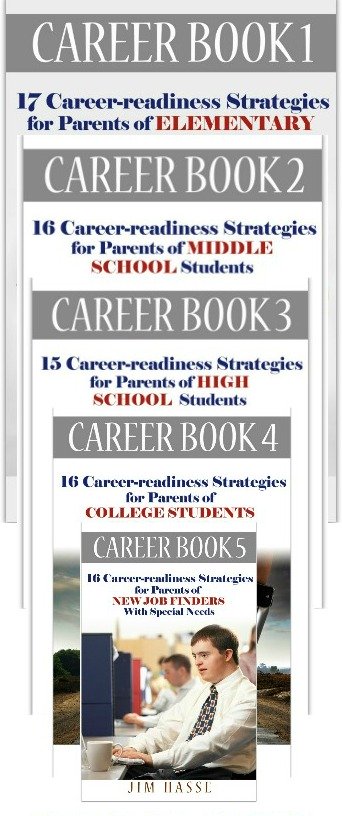Importance of Interpersonal Communication:
A Cerebral Palsy
Career Builder
By Jim Hasse, ABC, GCDF, Disability Employment Expert
_________________________________________________________
I cannot stress enough the importance of interpersonal communication for the new job seeker with cerebral palsy (CP) you’re currently mentoring as a parent, friend or career coach.
Employers sometimes call it “good interpersonal skills.” They say they want a “good communicator.” They want someone who is “authentic” or an applicant who demonstrates “emotional intelligence.”
What they really seek in a job candidate is “social intelligence,” according to Cynthia Kivland, MCC, co-founder and president of Workplace Coach Institute and president of Smart2Smarter, a coaching and career service firm.
Social intelligence is more than learning how to live with delayed gratification (the most common definition we often hear for the term, “emotional intelligence”), says Kivland, who has dedicated much of her training efforts to showing the importance of interpersonal communication.
She claims social intelligence is not a single skill but a combination of these skills:
- Knowing how to draw upon your self-confidence.
- Mastering your emotions and actions.
- Attracting other people to you.
- Being adaptable and resilient.
- Showing tolerance and acceptance.
- Evolving and improving emotionally, psychologically and
spiritually.
- Being able to teach and be taught, lead and be led and receive and give.
These seven skills show the importance of
interpersonal communication for your son or daughter with CP who is entering
the “real-world” job market for the first time.
Importance of interpersonal skills in my career
During my years in business, I’ve struggled with each one of the seven skills above. I remember blowing up at a staff meeting and later having to apologize to a fellow vice president, at the urging of our CEO.
I remember uttering, “That’s not my problem,” four deadly words that should never be heard when you’re trying to work together on a business project.
And, I remember verbally challenging a colleague in public about a problem we had in common -- a situation which needed to be discussed in private.
But, I also remember demonstrating these same seven skills to the more than 30 people (professionals and college interns) I trained as a hiring manager over a 28-year stint on the job within a Fortune 500 company.
And, I remember helping the company draft an employee evaluation system based on a variety of then-contemporary theories of motivation (all of which emphasized recognition of positive results). Maybe that’s why a couple of people, years later, have told me, “You’ve been my best boss.”
Such a compliment reminds me of what Mike, who, as a person with multiple disabilities, is fully integrated into the mainstream job market, told me some time ago.
He observed, “We are judged by our
abilities, but, often, we are also judged because of those who preceded us. The
experiences employers have had with disabled folks have a direct bearing on how
they perceive other disabled people, rightly or wrongly.”
“I’m capable of mastering my
destiny.”
Cite a time when your young job seeker
has taken a step toward making
that private thought come true.
Join
PACER’s Facebook
discussion.
So, I ask myself: “What story do I
want others to tell about me after I’m gone?” When I say or do things to
increase the positive emotions of others, I also increase my positive emotions.
But, when I decrease their positive emotions, I diminish myself. That’s tells
me something about the importance of interpersonal communication.
And that’s why I feel good when people call me optimistic.

Optimism is the key attribute
Kivland says the seven social intelligence skills she has identified have a common denominator: optimism.
I believe optimism is important for job seekers with CP because:
- We tend to attract people through our optimism. And
those people we attract tend to be optimistic, too.
- We show our resilience by continually reinventing how
to get things done. Resilience does not mean how we initially react to
adverse events but how we eventually react -- how we navigate the
transition.
For example, what we tell ourselves about our disabilities -- that disability doesn’t have to ruin the rest of our lives -- is an example of our resilience. Like a rubber band, we’re elastic. We bounce back -- even though we may not always bounce back to normal.
- We demonstrate that human beings can evolve, innovate and improve -- and that disability does not have to evoke pity or false admiration.
I also believe it’s important to avoid coming across to others as a “toxic” person, someone who is mired in old memories, fears and resentments. Together, toxicity and disability are a deadly mix.
On the other hand, one easy way your job seeker can demonstrate elasticity (and social intelligence) is to ask his or her second interviewers for a particular job: “What was it about me that prompted you to call me back for this second job interview?”
By doing so, your son or daughter is showing that, “I can step outside of myself, and I believe I’m capable of mastering my destiny. I can shift my focus and check the reality of my perceptions.”
Kivland calls that orientation “hope behavior.” I call it evidence of the importance of interpersonal communication.
“Hope behavior is based on experimentation, evolving capabilities, acceptance, persistence, possibility thinking, solution orientation, and resilience,” advises Kivland. “Let go of the embarrassment of being different or wrong from someone else’s perspective.”
That’s particularly meaningful for me as I continue to struggle, as a senior with greying hair and lifelong CP, to maintain my self-esteem in new situations which call attention to my vulnerabilities.
So, consider Kivland’s advice about the importance of interpersonal communication for your new job seeker with CP: “Show restraint. Behave calmly in stressful situations. Choose how you want to respond to stress instead of being on auto-pilot. Discover why you choose to respond the way you do.”
Kivland also adds this: “You’ll soon find yourself mastering your destiny and focusing on outcomes instead of the past. You’ll discover new thoughts, beliefs, perceptions and responses. You’ll have an understanding of how to help others be great. As a result, you’ll be an attractive job candidate -- one who is striving to be the best for the world (instead of the best in the world).”
Any doubts about the importance of interpersonal communication?
“I’m capable of mastering my destiny.”
Cite a time when your young job seeker
has taken a step toward making
that private thought come true.
Join PACER’s Facebook discussion.
Return from Importance of Interpersonal Communication
to Job Finder
Go to Cerebral Palsy Career Builders
This is Creative Commons content. You can freely and legally use, share and repurpose it for non-commercial purposes only, provided you attach this sentence and the following attribution to it (including the two links):
Originally written and illustrated by Jim Hasse, ABC, GCDF, owner of Hasse Communication Counseling, LLC, who, as a person with cerebral palsy, served for 10 years as a vice president in a Fortune 500 company during his 29-year career in corporate communication. He’s an Accredited Business Communicator, certified as a Global Career Development Facilitator and author of 14 Amazon books about disability awareness and disability employment issues.





